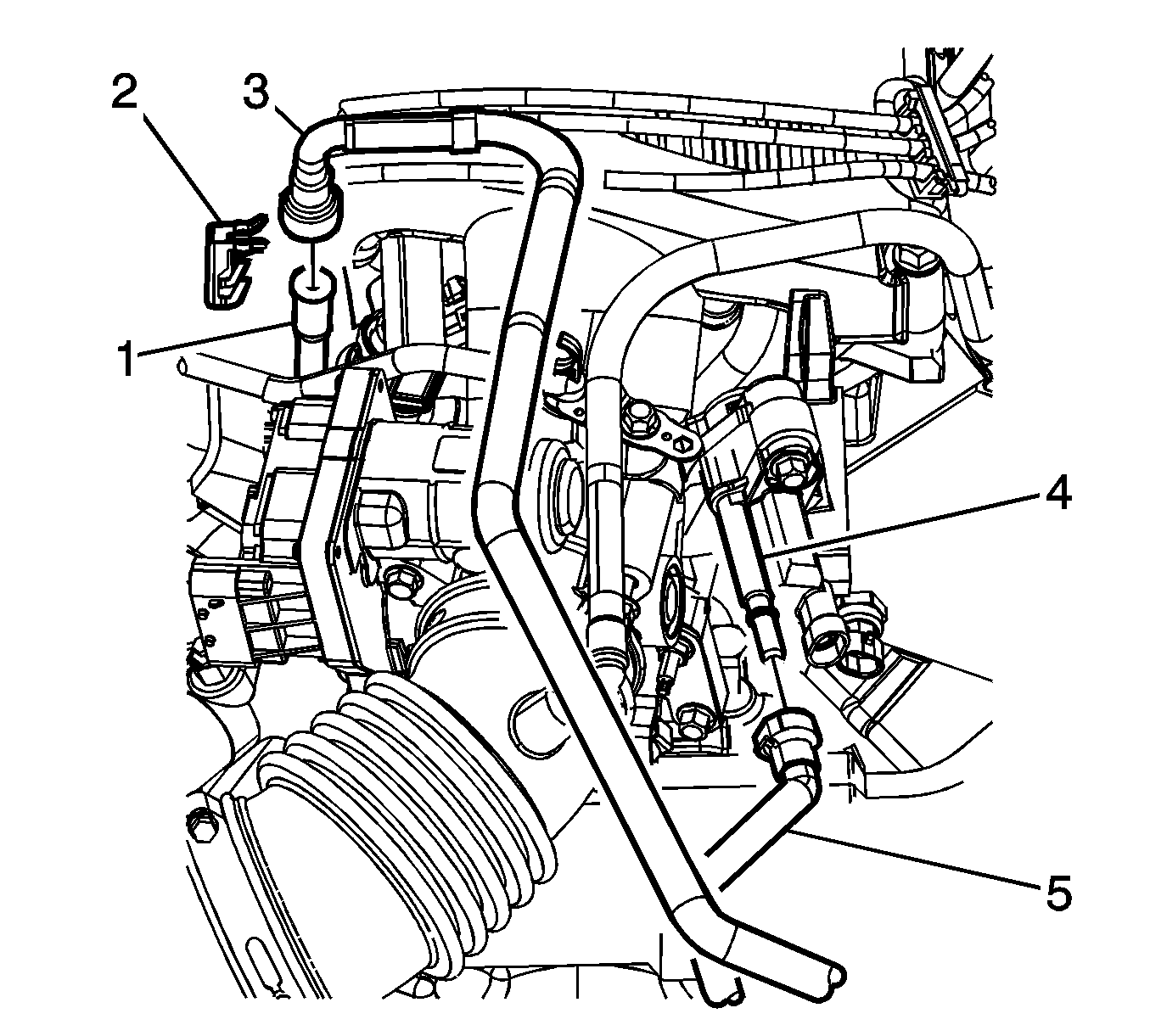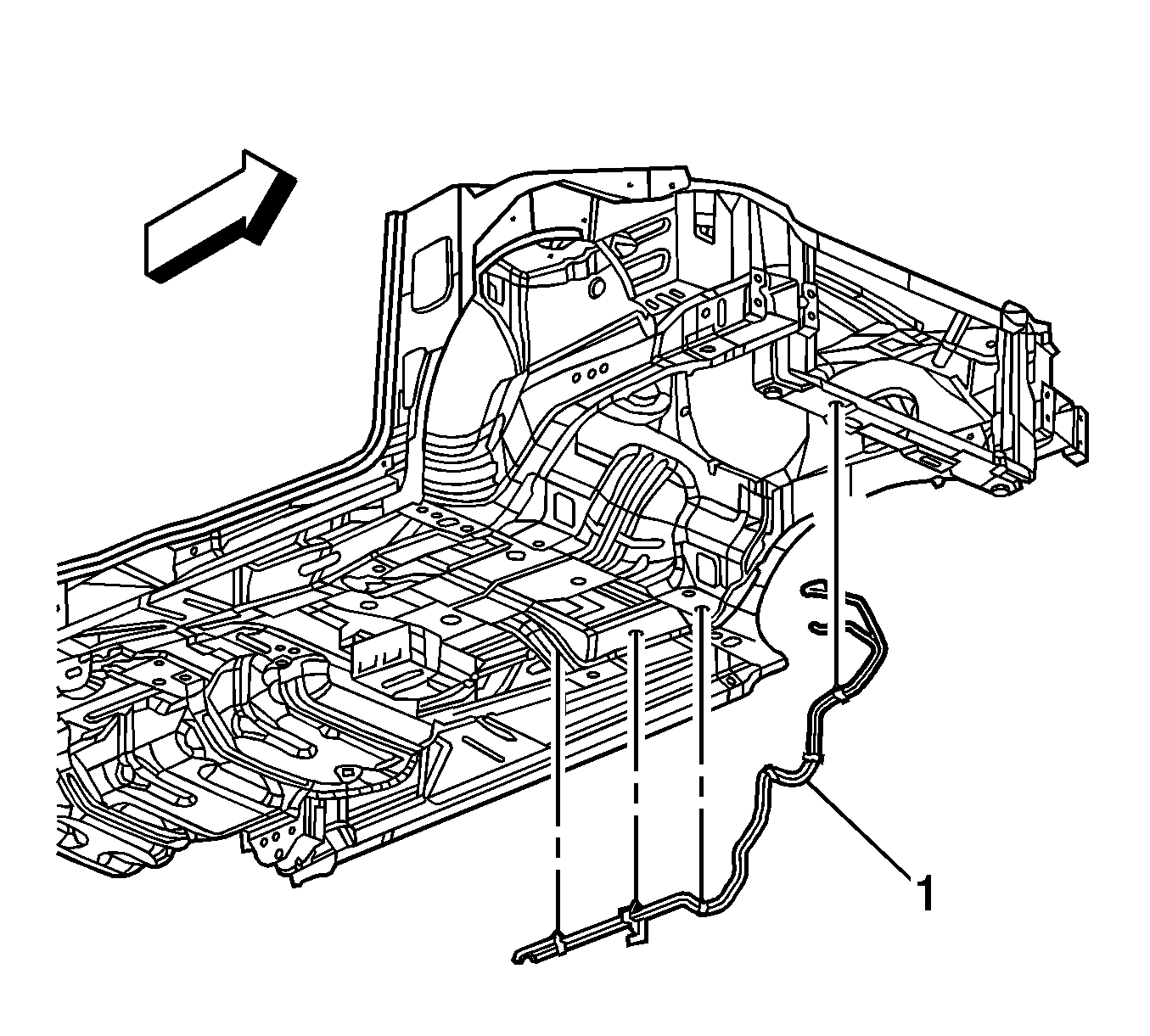Removal Procedure
Caution: In order to Reduce the Risk of Fire and Personal Injury:
| • | If nylon fuel pipes are nicked, scratched or damaged during installation,
Do Not attempt to repair the sections of the nylon fuel pipes. Replace them. |
| • | When installing new fuel pipes, Do Not hammer directly on the
fuel harness body clips as it may damage the nylon pipes resulting in a possible
fuel leak. |
| • | Always cover nylon vapor pipes with a wet towel before using a
torch near them. Also, never expose the vehicle to temperatures higher than
115°C (239°F) for more than one hour, or more than 90°C (194°F)
for any extended period. |
| • | Before connecting fuel pipe fittings, always apply a few drops
of clean engine oil to the male pipe ends. This will ensure proper reconnection
and prevent a possible fuel leak. (During normal operation, the O-rings located
in the female connector will swell and may prevent proper reconnection if
not lubricated.) |
Notice: Do not attempt to straighten any kinked nylon fuel lines.
Replace any kinked nylon fuel feed or return pipes in order to prevent damage
to the vehicle.
Notice: Cap the fittings and plug the holes when servicing the fuel system in
order to prevent dirt and other contaminants from entering the open
pipes and passages.
- Relieve the fuel system pressure. Refer to
Fuel Pressure Relief
.
- Clean all engine fuel pipe connections and areas surrounding the engine
fuel pipe connections before disconnecting the engine fuel pipe connections to avoid
possible contamination of the fuel system.

- Remove the fuel feed pipe retaining clip (2).
- Disconnect the engine fuel feed pipe (3) from the fuel rail (1).
Refer to
Metal Collar Quick Connect Fitting Service
.
- Disconnect the evaporative emission (EVAP) pipe (5) from the EVAP
canister purge solenoid valve (4). Refer to
Plastic Collar Quick Connect Fitting Service
.
- Cap the fuel pipes as needed to stop any fuel leakage.
- Remove the engine and transmission as an assembly. Refer to
Engine Replacement
in Engine Mechanical.
- Perform the following procedures if equipped with auxiliary rear air and
heat.
| 8.1. | Disconnect the rear heater and A/C pipes from the rear heating, ventilation,
and air conditioning (HVAC) module. Refer to
Auxiliary HVAC Module Replacement
in Heating, Ventilation and Air Conditioning. |
| 8.2. | Move the rear heater and A/C pipes in order to remove the fuel pipes. |

- Disconnect the fuel feed and evaporative emission (EVAP) pipes from the
fuel tank. Refer to
Plastic Collar Quick Connect Fitting Service
.
- Note the position of the fuel and EVAP pipes and the attaching hardware
for installation.
- Remove the fuel and EVAP pipes (1).
- Inspect the pipes for bends, kinks, and cracks.
- Replace the pipe or pipes as required.
Installation Procedure

- Install the fuel and EVAP pipes (1).
- Perform the following procedures if equipped with auxiliary rear air and
heat.
| 2.1. | Move the rear heater and A/C pipes into their original position. |
- Connect the fuel feed and EVAP pipes to the fuel tank. Refer to
Plastic Collar Quick Connect Fitting Service
.
- Install the engine and transmission as an assembly. Refer to
Engine Replacement
in Engine Mechanical.
- Remove the caps from the fuel pipes.

- Connect the engine fuel feed pipe (3)
to the fuel rail (1). Refer to
Metal Collar Quick Connect Fitting Service
.
- Connect the EVAP pipe (5) to the EVAP canister purge solenoid valve (4).
Refer to
Plastic Collar Quick Connect Fitting Service
.
- Tighten the fuel filler cap.
| 8.1. | Turn ON the ignition for 2 seconds. |
| 8.2. | Turn OFF the ignition for 10 seconds. |
| 8.3. | Turn ON the ignition. |
| 8.4. | Inspect for fuel leaks. |




